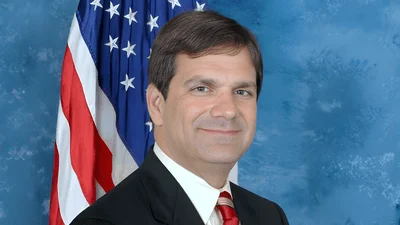Congresswoman Nita M. Lowey (D-NY), Chair of the House Appropriations Committee and the State, Foreign Operations, and Related Programs Appropriations Subcommittee, delivered the following remarks at the Subcommittee's hearing on United States efforts to counter Russian disinformation and malign influence:
The subcommittee on State, Foreign Operations and related programs will come to order.
I am pleased to welcome John Lansing, CEO of the United States Agency for Global Media; Lea Gabrielle, Special Envoy and Coordinator of the State Department’s Global Engagement Center; and Jim Kulikowski, Assistance Coordinator for Europe and Eurasia at the Department of State, for today’s first panel.
For our second panel, we will be joined by Alina Polyakova, Director of the Project on Global Democracy and Emerging Technology at the Brookings Institution, and Nina Jankowicz, Global Fellow at the Kennan Institute.
Since World War II, the mission of United States international broadcasting has been to provide accurate news to those abroad who lack access to a free press and accurate information.
But in today’s interconnected world, information spreads more rapidly than ever before.
While the United States is committed to advancing democratic principles, including freedom of speech and the press, Russia and others, who do not share our values, continue to utilize communications tools - from traditional print to social media to targeted ads - to do harm.
Russian interference in the 2016 election was perhaps the most resounding wake-up call to this threat.
Three years later, the United States still lags in responding to malign foreign influence in the information space.
Technological advancements - such as deep fakes and synthetic videos - have made these risks even greater.
Our goal today is to better understand these threats and how our investments in the United States Agency for Global Media, or “USAGM," are informing, engaging, and connecting people around the world, and how those audiences receive, perceive, and share content.
It is also helpful to understand whether our efforts through the Global Engagement Center, or “G.E.C.," to counter propaganda and disinformation from international terrorist organizations and foreign countries are effective.
In Fiscal Year 2019, Congress appropriated $808 million to the United States Agency for Global Media and more than $55 million to the Global Engagement Center.
This included significant resources for a 24-hour Russian-language television and digital news network for Russia, countries in Central and Eastern Europe, and around the world.
In the House-passed Fiscal Year 2020 Appropriations bill, we provided funding to support data-driven programming and efforts to counter propaganda and extremist rhetoric.
The United States has some of the best technology and marketing minds in the world. However, Russian disinformation campaigns only seem to be growing stronger.
We must adapt and innovate to effectively deliver programming and inform audiences.
This is critical as disinformation has the potential to weaken democracies and to fan the rise of nationalist and anti-European Union sentiments in the region.
We cannot afford to operate in a vacuum.
The United States must utilize all our tools of public diplomacy to get our message out and win “hearts and minds."
To achieve this goal, we need a broader strategic dialogue, backed by research that considers audience reach, media consumption behaviors, evolving information technology practices, and perception of messaging from various sources.
To make significant progress against malign influence, we must consider how we can leverage the vast expertise and reach of the private sector in partnering to combat disinformation campaigns.
I welcome your thoughts today on all these topics.
Before we hear your testimony, I would like to invite my Ranking Member, Mr. Rogers, to make remarks.
Source: U.S. Department of HCA








